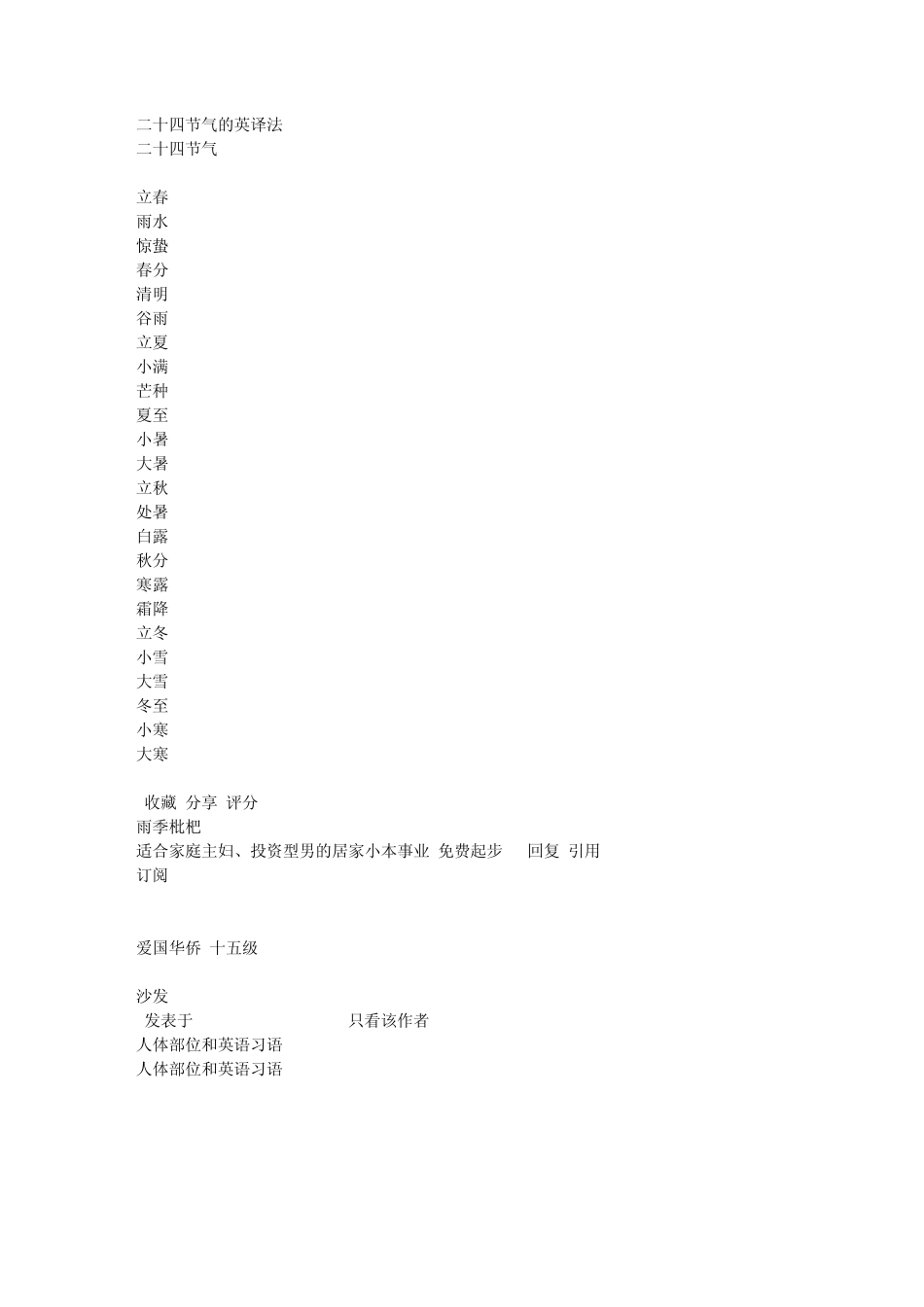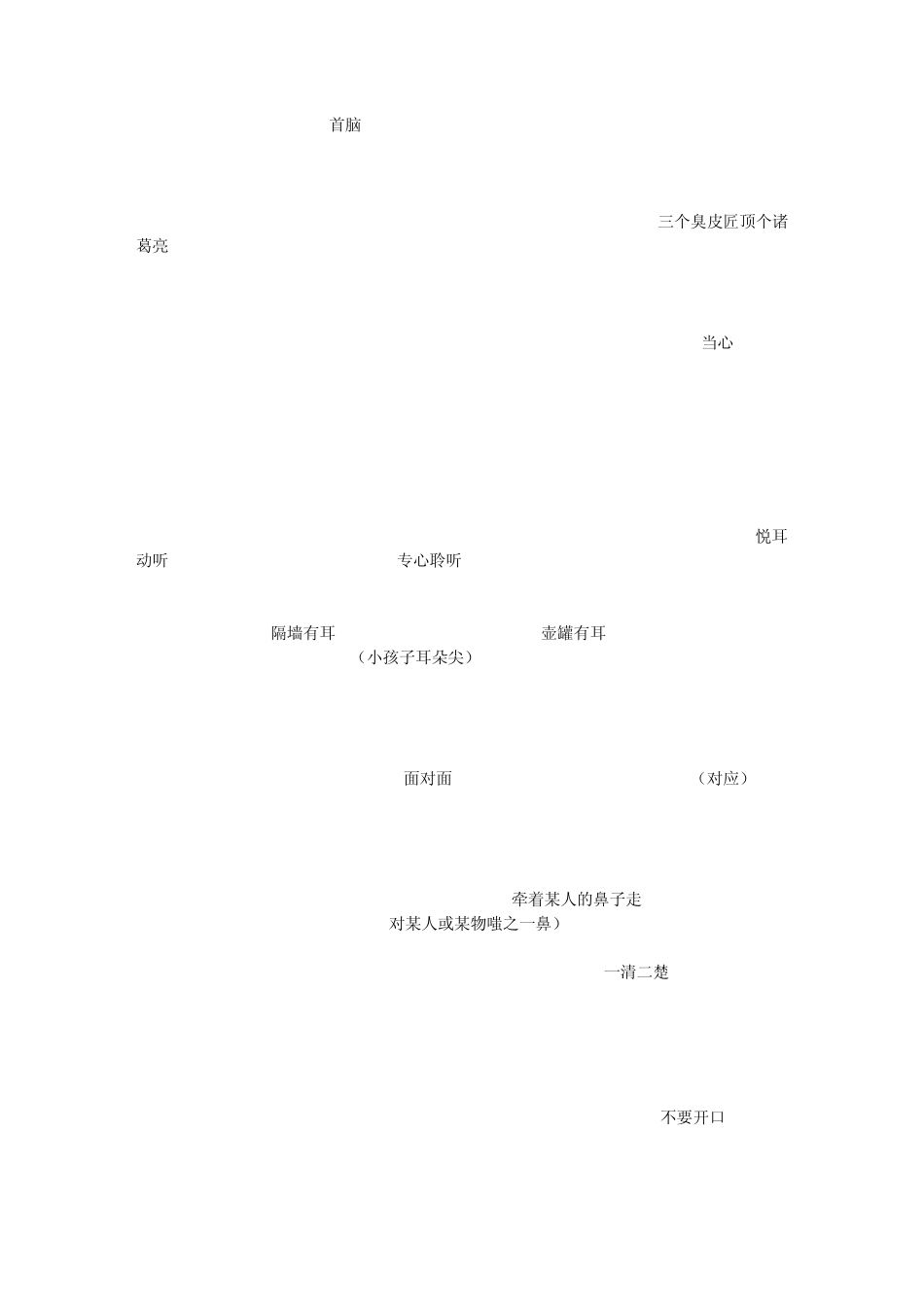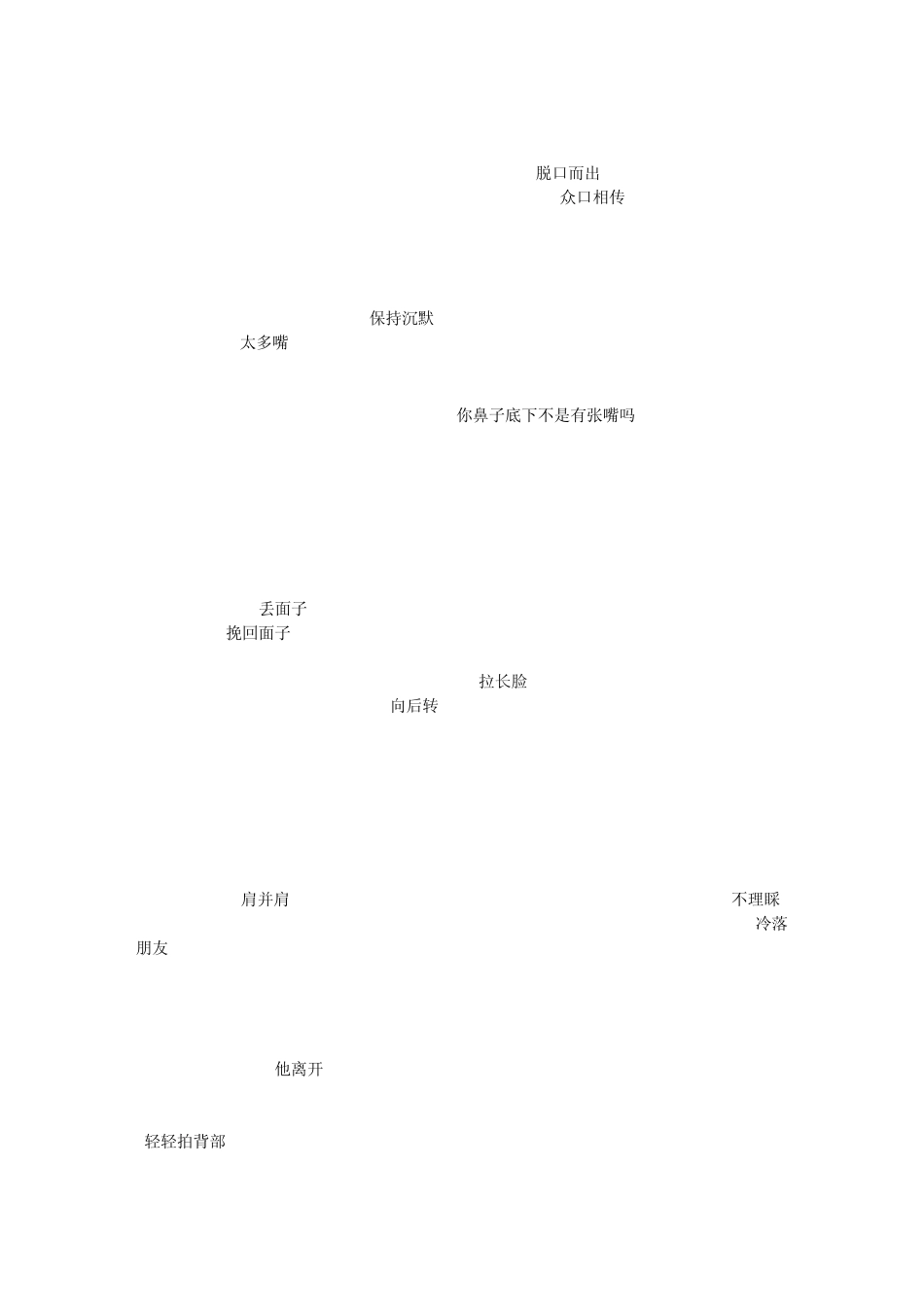二十四节气的英译法 二十四节气 The 24 Solar Terms: 立春 Spring begins. 雨水 The rains. 惊蛰 Insects awaken. 春分 Vernal Equinox 清明 Clear and bright. 谷雨 Grain rain. 立夏 Summer begins. 小满 Grain buds. 芒种 Grain in ear. 夏至 Summer solstice. 小暑 Slight heat. 大暑 Great heat. 立秋 Autumn begins. 处暑 Stopping the heat. 白露 White dews. 秋分 Autumn Equinox. 寒露 Cold dews. 霜降 Hoar-frost falls. 立冬 Winter begins. 小雪 Light snow. 大雪 Heavy snow. 冬至 Winter Solstice. 小寒 Slight cold. 大寒 Great cold. 收藏 分享 评分 雨季枇杷 适合家庭主妇、投资型男的居家小本事业,免费起步! 回复 引用 订阅 TOP yjpp 爱国华侨(十五级) 沙发 发表于 2004-1-20 00:25 | 只看该作者 人体部位和英语习语 人体部位和英语习语 1. Head The head is thought to be the most important part of the human body. So a leader is often compared to a head (首脑). Thus we have Head of State or the head of a delegation. The head is where the brain is located. It is naturally associated with ideas and intelligence. Very often, we need other people's ideas and opinions when we want to do something well. The is because two heads are better than one (三个臭皮匠顶个诸葛亮). 2. Eye The eyes are extremely precious to us. That is why we say" Mind your eye (当心)! when we reminding someone to be careful. Not only human beings and animals have eyes, many things also have" eyes"- the eyes of a ship, the eye of a needle, the eye of a typhoon, and so on. 3. Ear The ear is the organ of hearing. A piece of light music is easy on the ear. (悦耳动听). We are usually all ears (专心聆听) for bit news. When they think somebody is overhearing, English people use either of the two proverbs: Walls have ears (隔墙有耳) and Pitchers have ears (壶罐有耳)....


